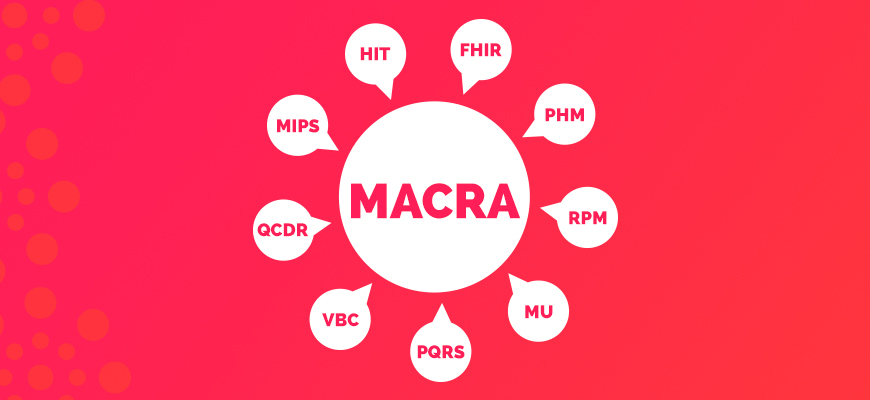
One of the most recent examples of the changing healthcare landscape is the Medicare Access and CHIP Reauthorization Act, or MACRA. This law is primarily focused on encouraging physicians to deliver valuable healthcare services to patients as part of the Affordable Care Act. With the first performance reporting period beginning on January 1, 2017, many physicians still have a lot of work to do to meet the requirements. Here is what you need to know.
What is MACRA?
MACRA replaces the current Medicare reimbursement schedule with a new pay-for-performance program that is focused on quality, value, and accountability. The Centers for Medicare and Medicaid Services (CMS) stated that MACRA enacts a new payment framework that rewards health care providers for giving better care instead of more service. MACRA combines parts of the Physician Quality Reporting System (PQRS), Value-Baased Payment Modifier (VBM), and the Medicare Electronic Health Record (EHR) incentive program into one single program called the Merit-Based Incentive Payment System, or “MIPS.”
What is MIPS?
MIPS includes four performance categories: quality (50%), resource use (10%), advancing care information (25%), and clinical practice improvement activities (15%). These categories are used to evaluate a provider’s quality, use of services, EHR use, and quality improvements to care coordination and delivery. A provider’s quality score determines the payment adjustment in subsequent years. The payment adjustment is 4% in 2019, 5% in 2020, 7% in 2021, and 9% in 2022 and beyond.
Advanced care information: Health information measure
Under MACRA, Meaningful Use has been transformed as part of MIPS scoring. The new model includes an expanded APM track now known as Advanced APM. Advanced care information is significant because it contributes to 25% of the total score in year one. Clinicians can choose to report customizable measures that reflect how they use EHR technology in their day to day practice, with a particular emphasis on interoperability and information exchange.
How the RGV HIE can help
The RGV HIE offers an affordable solution for clinics and health organizations to share patient health information to meet current legislation requirements such as Meaningful Use, PCMH, and MACRA. Essentially, you connect your EHR to the HIE one time and we can direct your data to any destination required at a reasonable fee. Our technology will enable your organization to have the option to participate in our HIE, disease registry, or quality reporting tool.
